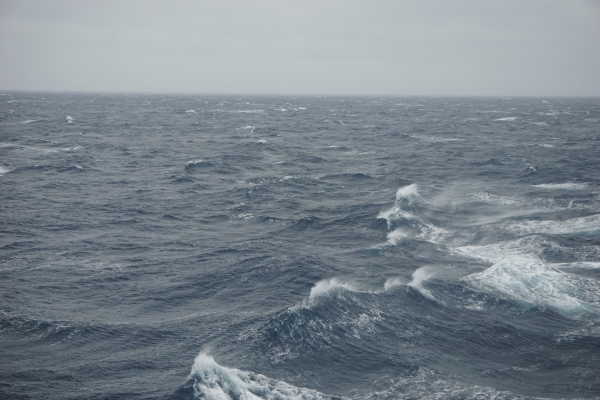25 February 2018
We have been told by people who have previously visited the Ross Sea that you could count on seeing three things: icebergs, penguins on icebergs and seals on icebergs.
So far, we have seen one iceberg on our transit south (rumor has it that our captain modified our route slightly so we would see at least one), two through binoculars off of Cape Adare and Cape McCormick, and the one Adelie penguin who decided to hitch a ride on the back of our trawl deck.
Since then, there has been nothing but open ocean as far as the eye can see! We look at pictures from past voyages and can’t believe we have come to the same place, the lack of ice is astonishing.
We are currently surveying Iselin Bank, which has the benthic team all excited since it is normally covered with ice, and provides a unique opportunity to do camera surveys of this very poorly studied area.
However, no ice means that it is a bit of a guessing game when trying to discern the location of the krill and whales. Where do the ice-associated fauna go when all the ice melts? Do they stay and hang around, or leave with the ice?
We will not be able to answer all of these questions this time around. However, as the ocean continues to warm and the ice continues to melt, there is no question that these sensitive polar habitats will undergo significant changes. We are thankful for the possibility of coming here now, and over the next five years, to study and understand the consequences of fishing and climate change. It seems like we picked the perfect year (or not!) to start the Ross Sea Research and Monitoring Programme.


